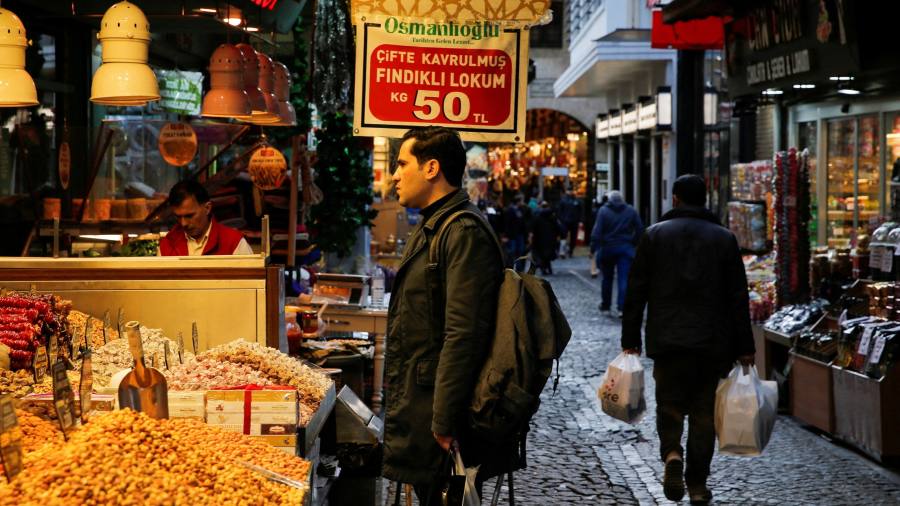Receive free Turkish economy updates
We’ll send you a myFT Daily Digest email rounding up the latest Turkish economy news every morning.
Turkey has almost doubled its main interest rate, as the central bank’s new leadership takes the first steps to break with the politically-motivated policies that stoked inflation and sent foreign investors fleeing.
The central bank, helmed by newly-appointed governor Hafize Gaye Erkan, on Thursday boosted its benchmark one-week repo rate to 15 per cent from 8.5 per cent.
Local business executives and international investment banks had hoped for a bigger increase in borrowing costs to around 20 per cent. The lira fell 2.9 per cent to a fresh record low of 24.24 against the dollar after the decision, according to FactSet data.
“The rate hike is below expectations, but can be considered as the first of several steps,” said Enver Erkan, chief economist at Istanbul-based brokerage Dinamik Yatırım Menkul Değerler.
Central bank watchers have been betting on a shift in stance from the low rate policies pushed by President Recep Tayyip Erdoğan since May’s presidential election, which Erdoğan won.
Their optimism has been fuelled by the president’s appointment of Mehmet Şimşek, an investor-friendly former deputy prime minister, as finance minister and Erkan, a former Goldman Sachs executive, as central bank chief.
The low rates deployed over the past two years have triggered a surge in inflation to a peak of above 85 per cent. Inflation remains high at just below 40 per cent.
Rate-setters hinted at further increases in the coming months, saying they would tighten policy “as much as needed in a timely and gradual manner until a significant improvement in the inflation outlook is achieved”.
A series of rate cuts since 2021 sent the lira tumbling to record lows against the dollar and added to serious imbalances across the $900bn economy.
The loose monetary policy, on top of government giveaways before May’s election, has led many economists to say Turkey’s economy is running too hot. While higher rates will help slow activity, a rise of the scale announced is unlikely to have a dramatic impact.
Dinamik’s Erkan noted that rates paid on commercial loans and bank deposits were already well higher than the new central bank policy rate.
While Thursday’s move marked a shift towards more conventional policies, investors warn that Erdoğan, who has led Turkey for two decades, has been down this path before only to shift course.
Former central bank governor Naci Ağbal was sacked in early 2021 just months into his term after boosting borrowing costs.
Read the full article here




